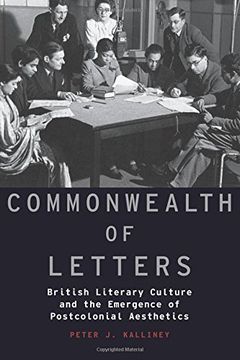Commonwealth of Letters: British Literary Culture and the Emergence of Postcolonial Aesthetics (Modernist Literature and Culture) (en Inglés)
Reseña del libro "Commonwealth of Letters: British Literary Culture and the Emergence of Postcolonial Aesthetics (Modernist Literature and Culture) (en Inglés)"
Commonwealth of Letters examines midcentury literary institutions integral to modernism and postcolonial writing. Several organizations central to interwar modernism, such as the BBC, influential publishers, and university English departments, became important sites in the emergence of postcolonial literature after the war. How did some of modernism's leading figures of the 1930s-such as T.S. Eliot, Louis MacNeice, and Stephen Spender-come to admire late colonial and early postcolonial literature in the 1950s? Similarly, why did late colonial and early postcolonial writers-including Chinua Achebe, Kamau Brathwaite, Claude McKay, and Ngugi wa Thiong'o-actively seek alliances with metropolitan intellectuals? Peter Kalliney's original and extensive archival work on modernist cultural institutions demonstrates that this disparate group of intellectuals had strong professional incentives to treat one another more as fellow literary professionals, and less as political or cultural antagonists.Surprisingly, metropolitan intellectuals and their late colonial counterparts leaned heavily on modernist theories of aesthetic autonomy to facilitate their collaborative ventures. For white, metropolitan writers, T.S. Eliot's notion of impersonality could help recruit new audiences and conspirators from colonized regions of the world. For black, colonial writers, aesthetic autonomy could be used to imagine a literary sphere uniquely resistant to the forms of racial prejudice endemic to the colonial system. This strategic collaboration did not last forever, but as Commonwealth of Letters shows, it left a lasting imprint on the ultimate disposition of modernism and the evolution of postcolonial literature.

